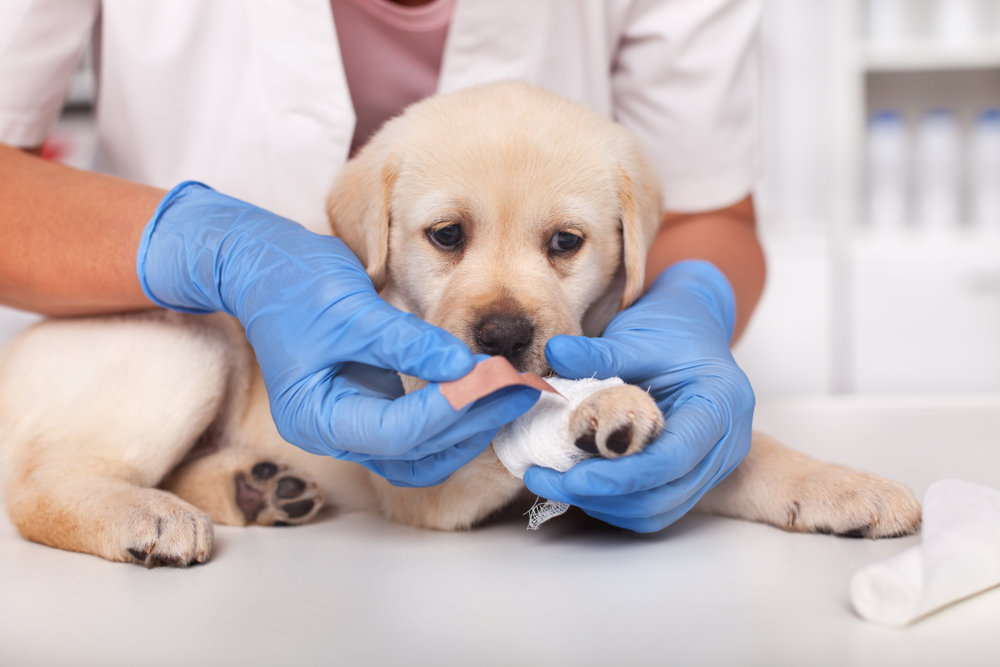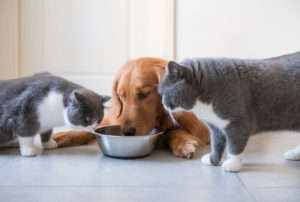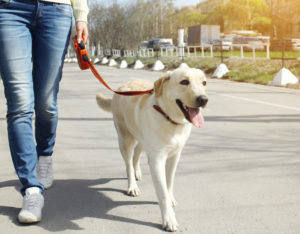Early dog and cat insurance is important
Veterinarians know from their daily practical experience that the costs for a pet owner are higher the older the animals get. The reason: With age, chronic diseases often set in, which can be treated with great expenditure of time and money. In the meantime, many dog and cat owners have decided to have their animals insured, and there is a comparatively large selection of such providers. Most policyholders say they are satisfied with the insurance to their veterinarian. Tip: The earlier this is concluded, the cheaper it is. This applies, on the one hand, to the premiums and, on the other hand, to the obstacle to insuring chronically ill animals. The relevant data must be provided when carrying out the health inquiry before concluding the insurance contract. Older animals usually already have one or the other ailment, which must be listed here and which leads to the exclusion of insurance eligibility.
Big dogs cost a lot
It is well known that larger animals cost more than smaller ones. In principle, this applies to all animal species, but it can also be used within a species. A large dog costs more at the vet than a small one or a cat. It is not the examination itself that is more expensive, it is the medication that makes the difference. These are measured according to the body size or the weight of the animal. In terms of medication, a dog weighing 50 kg costs more than a dog weighing just ten kilograms. This also makes a difference with medication that you use regularly, such as worming agents. It is particularly noticeable, for example, in the case of protracted therapy for inflammation or cancer; chronic diseases such as osteoarthritis can also cost money. At the same time, large dogs are more prone to many ailments, examples being osteoarthritis and hip dysplasia. They put heavier loads on their bones and joints, which means that symptoms of wear and tear and inflammation appear earlier.
Would you rather take out insurance?
Veterinarians are often confronted with the fact that the pet owners are not solvent. You put bills on hold or ask for a possible installment if the examination turns out to be more expensive than expected. In order to be protected against payment default, veterinarians advise you to take out animal insurance. Have better than need! That is probably the motto. However, such an insurance also costs a lot of money, with the amount of the premiums depending on the desired services. A pure operating theater insurance costs less than a complete health insurance for the animal, even if regular examinations, vaccinations and deworming should be included. Nice for the animal, annoying for the owner: If the insurance is not needed, the money is gone. It will not be paid out again if the insurance company did not have to be used.
Conclusion: take out animal insurance based on animal size and financial status
Anyone who can afford to financially cope with a major, unplanned treatment of dog or cat, certainly does not need animal insurance. It is paid into this as long as the animal lives. If he stays healthy until his death, the insurance benefits will never be used and the premiums have been paid unnecessarily. However, if you want to be fully covered and want to ensure that the animal receives the best and most comprehensive treatment in an emergency, you should take out animal insurance. This is particularly recommended for animals that are very large, because they not only cost significantly more in terms of maintenance, but also in terms of veterinary services than small representatives of their species.







